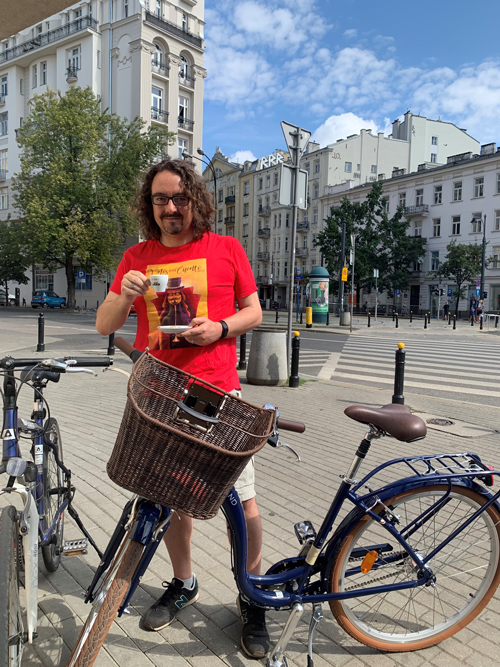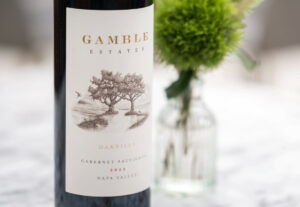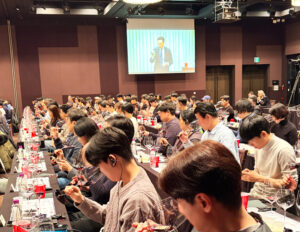모든 것은 다시 돌아온다. 과거는 반복적으로 우리를 몇 번이고 찾아와 향수를 불러일으키곤 눈가를 촉촉하게 적시는가 하면, 한편 과거의 폐단을 번복하기도 한다. 우리 모두가 자유민주주의와 세계화가 승리했다고 생각했을 때 민족주의가 도사리고, 일부 십대들은 한 번도 직접 겪어보지 못한 공산주의를 선망하기도 하고 한편 또 다른 사람들은 자유방임주의를 주장한다. 현대 과학은 중국 전통 의학이나 아유르베다(Ayurveda 약은 고대 인도 힌두교의 대체 의학 체계)와 같은 전통 있는 옛것들을 이끌어내려 하고 재고한다. 와인의 세계도 마찬가지로 예외 없이 그 경로를 따라가는 것 같다. 현대 과학을 걷어내고, 과거의 자발성과 순수성을 회복하려는 노력을 통해 고대 기술을 도입하고 회생시키려 한다.
수많은 와인 관련 분야들은 환경과의 건강한 관계를 구축하기 위해 소싯적 시절을 떠올리며 생산 과정에 대한 최소한의 개입을 촉구한다. 바이오다이나믹에 관한 정보가 업데이트되고 내추럴 와인 분야의 움직임과 같은 새로운 바람이 불었으며, 지속가능한 문화(퍼머컬쳐,permaculture)나 재생 농업과 같은 새로운 철학이 등장하였다(미구엘 토레스(Miguel Torres)가 이 새로운 길을 이끌었다). 이 모든 것은 틀림없이 통과의례로 중요한 과정들이며, 오늘날의 추세이자 경종을 울리는 움직임들로, 자연과 조화롭게 살기 위한 인간의 마지막 노력일 것이다.
단, 혼동하지 마시길. 과거의 매 순간이 더 나았다는 의미만을 말하려 하는 것은 아니다. 오늘날 평균 수명은 100세를 넘었고, 예전처럼 이른 나이에 유명을 달리하지 않는다. 굶주림으로 죽는 사람은 거의 없다(비록 우리가 여전히 식량 위기에 대해 이야기하고 있다는 것은 상상할 수 없지만). 대다수 인간은 최소한 읽고 쓰는 방법을 알고 있다(비록 많은 사람이 많이 읽고 쓰는 일을 실천하지는 않지만.). 범죄율은 과거보다 낮고 일부 불쌍한 독재자들의 정신 나간 과대망상 증상에도 불구하고 전쟁도 드물다. 당면한 복잡한 현안과 문제점들, 불평등과 기후 변화에 대응해야 하는 중요한 도전에도 불구하고… 세상은 과거보다는 더 나아졌다.
또한 이 시점에, 우리는 과학의 엄청난 발전을 무시해서는 안 된다. 예를 들어, 몇몇 초창기 로마의 기술자들이 과거에 그랬던 것처럼 와인을 달콤하게 하고 맛없는 와인을 감추려고 꿀을 첨가한 사람이 있는가? 모르겠지만 그런 경우가 있을 수도... 아니면, 우리 조상들이 그랬던 것처럼 동물의 분뇨와 짚으로 암포라나 항아리를 봉하거나 혹은, 고대 로마 작가인 콜루멜라(Columella)가 1세기에 묘사한 것처럼 당분을 농축하고 식감을 향상하기 위해 포도 주스를 납 용기에 넣고 끓이는 일이 있는가? 또 2,000년 전에 그리스인들이 그랬던 것처럼, 와인의 맛을 내고 수명을 연장하기 위해 알레포 소나무의 레치나(Letzina)를 모아 맛을 내고 와인의 수명을 연장시키는가? (헉! 아직도 일부 그리스 생산자들은 그렇게 하는 경우도 있지만.)
어쨌든, 과학은 광범위한 포도 재배와 일관된 품질(계절 따라 기후 변화의 큰 폭에 대처하고 농작물의 피해를 완화)을 가능케 했다. 그리고 최소한 이론적으로는, 더욱 안전하고 영양가가 높은 제품의 생산이 가능케 됐다.
오늘날 대다수 와인 생산자들은 행성의 움직임과 달의 주기를 관찰한다. 그들은 말을 활용해서 땅을 갈고, 수분 작용을 촉진하기 위해 꽃을 키운다. 그리고 오리, 라마, 닭과 함께 덤불을 청소하고 토양을 비옥하게 하는 한편, 단일 재배로 인한 영향을 경감하기 위해 토착 식물을 위한 회랑을 남긴다. 포도즙은 자발적으로 발효되고(인공 효모를 사용하지 않고 포도밭이나 지하실에서 발견되는 야생 또는 토착 효모를 사용한다) 와인 생산자들은 아로마를 드러내는 효소나 염료를 첨가하지 않으며, 그들은 무모한 일에 투자하지 않는다. 특히, 와인의 높은 알코올 도수로 인해 더 많은 세금이 부과된다는 이유로 알코올 도수를 낮추기 위한 경우나, 혹은 트렌드이자 밀레니얼 세대의 수요를 맞추려고 무알코올(알코올 도수 0%) 와인을 만들기 위한 경우에도 역삼투압(Reverse osmosis-알코올 도수를 낮추기 위한 가장 흔히 사용하는 기술) 기술의 활용은 지양하는 추세다.
확실히, 오늘날 혁신은 곧 과거를 돌아보는 것이다 난 전적으로 동의한다. 여기서 중요한 것은 우리의 발자취를 더듬어 보는 것이 아니라, 과학의 진보를 악마화하지 않고, 청교도적 개념이나 독단주의에 사로잡히지 않고 더 진실하고 순수하며 건강한 제품을 생산하기 위해 좋은 관행을 잇고 이러한 모범 사례를 업데이트하는 것이다. 모든 것은 돌고 돌아 다시 현실이 되지만 결코 똑같지 않다. 우리가 알다시피 우주는 끝없이 확장되고 발전하며 진화한다.
글 에두아르도 브레토(Eduardo Brethauer) 번역 최민아

에두아르도 브레토(Eduardo Brethauer)
칠레의 저널리스트이자 마케팅 전문가, 그리고 와인 탐험가다. 크리에이티브 디렉터, 아마추어 요리사, 5개 대륙의 와인 품평회 심사위원 등으로 활발하게 활동한다. 흥미로운 칠레 와인 가이드인 ‘Vinos con Cuento’의 저자이며, 웹사이트 www.brethauer.cl의 운영자이다.
비냐도레스 드 까리냥(Vigno, Vignadores de Carignan)의 공동 설립자이며 지역 품종들과 소규모 농가와 같은 숨겨진 보석에 가치를 더하는 프로젝트도 담당하고 있다. 폴란드의 바르샤바에 거주하며, 그곳에서 여행하고 글을 쓰고 마스터 클래스, 시음회, 와인 박람회 등을 진두지휘한다.
Vintage
Everything comes back. The past visits us, again and again, filling us with nostalgia, moistening our eyes, reviving the fallacious idea of the good old days. Nationalism lurks, when we all thought that liberal democracy and globalization had won. Some teenagers miss communism without having suffered it. Others insist on laissez faire. Modern science revises and rescues certain ancestral knowledge, such as traditional Chinese medicine or Ayurveda. And the world of wine, of course, also seems to retrace his steps. It denies modern science and makes ancient techniques its own to recover the supposed spontaneity and purity of yesteryear.
Numerous wine tribes look to the past to establish a healthier relationship with the environment, raising the flag of minimal intervention in the production process. Biodynamic is updated. New phenomena burst forth, such as the movement of natural wines. New philosophies emerge such as permaculture or regenerative agriculture (no less than Miguel Torres leads this new path). All this, without a doubt, is an important step, perhaps a trend, a wake-up call or a last human effort to live in harmony with nature.
However, do not be confused. All past time was not better. Today people do not say goodbye at forty-odd years, but life expectancy exceeds 75 on average. Fewer die of hunger (although it is inconceivable that we are is still talking about food crisis.) The vast majority know at least how to read and write, even if we don't do it. Crime rates are lower than ever. Even wars are rarer, despite the delusions of grandeur of certain sad dictators. The world is better, despite all its problems, pending bills and important challenges, such as the fight against inequality and climate change.
Nor should we dismiss the enormous advances of science. Does anyone today add honey to sweeten and disguise the off-flavors of wines, as some early Roman technicians did? Maybe. Or seal the amphorae or clay jars with animal dung and straw, as our parents' parents did? Or boil the grape juice in a lead vessel to concentrate sugars and improve the texture, as Columella describes in the 1st-century? Or aggregate retsina of Aleppo pine trees to flavor and lengthen the life of the wines, as the Greeks did 2,000 years ago? (Hoops, some producers still do it.) Anyways, science has allowed extensive cultivation, consistent quality (mitigates the climatic accidents of the seasons) and products, at least in theory, safer and more nutritious.
These days many winemakers, however, observe the movement of the planets and the lunar cycles. They plow the land with horses. They grow flowers to encourage pollination. They work with ducks, llamas and chickens to clear brush and fertilize the soil. They leave corridors of native trees to mitigate the effects of monoculture. They are carried away by spontaneous fermentation (they do not use technological yeasts, but the wild or native ones found in the vineyard or in the cellar). They do not add aroma-revealing enzymes or dyes. They do not invest in tangential filters. Not least in reverse osmosis to dealcoholize wines, when the degrees go to their heads and they must pay more taxes, or satisfy the millennial demand for 0% alcohol products.
For sure, today to innovate is to look to the past. I fully agree. The important thing, here it is, is not to retrace our steps, but to update those good practices to produce more genuine and healthy products, without demonizing the advances of science, without being trapped by puritanical conceptions or dogmatisms. Everything comes back, but never the same. The universe, as we know, expands and evolves.









